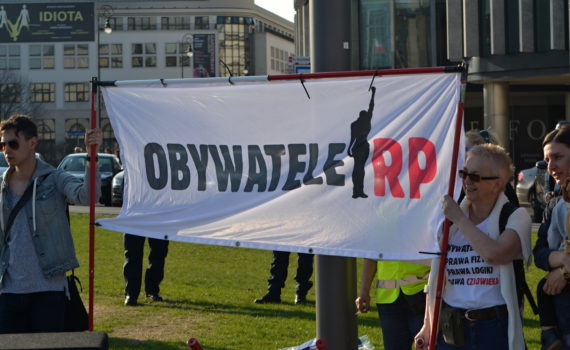
Civil Disobedience
The phrase “civil disobedience” is often bandied about by political activists, but it’s a risky tactic if the goals aren’t clear. Is the purpose to solidify the commitment and solidarity of the protesters? That’s pretty easy to accomplish: being arrested, particularly as part of a group, can be a transformative experience (to say the least). But what if the goal is to actually shift public attitudes? That’s a lot harder, because it requires the sort of act that disinterested observes will understand and respect, so that if the police do intervene, most people end up sympathizing with those being arrested.
Yesterday I received a lesson in how to do this, and I saw how very, very hard it is.
The context was the 7th anniversary of the airplane crash that killed 96 Polish dignitaries, including then-president Lech Kaczyński, the twin brother of Poland’s current de facto ruler, Jarosław Kaczyński. The current regime in Poland propagates the lie that the crash was an assassination organized by the enemies of the nation both inside Poland and abroad, a legend that Kaczyński uses to justify his assault on the norms of constitutional rule and liberal democracy. (For further background on the mythology of this alleged “assassination,” click here.) His goal, as he has said repeatedly, is to purge Poland of the traitors and enemies, so that national security, strength, and above all unity can be restored.
The anniversary ceremony was unusual even by the standards of Law and Justice (Prawo i Sprawiedliwość, or PiS). Terrified that the event might be unsettled by some sign of protest, they blocked off nearly the entire historical center of town and only allowed those with invitations to enter.
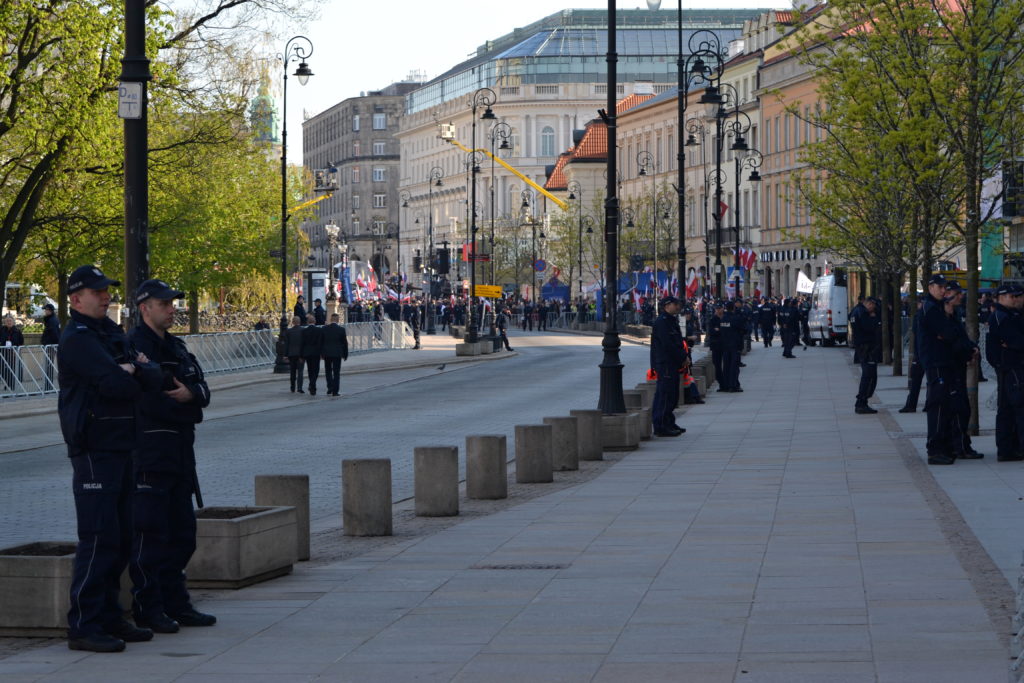
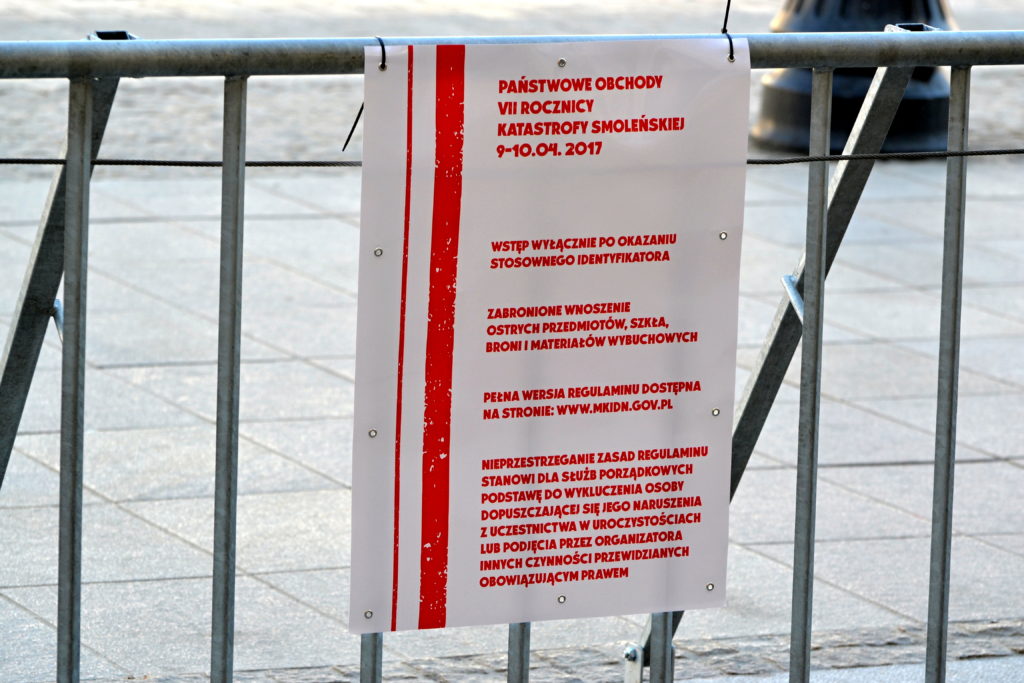
Thousands of PiS supporters had arrived from all over the country to participate in the commemorative mass, and I overheard bitter complaints from them wherever I went yesterday afternoon, as they realized that they wouldn’t be able to get close to their heroes. The pre-screened audience got to watch speeches by various Polish dignitaries in front of the Presidential Palace, and people following the official propaganda channels on TV saw a respectful crowd that responded with unified approval as different speakers repeated the conviction that Lech Kaczyński had been assassinated by Poland’s enemies. The small crowd then marched towards Castle Square, where a select few were admitted into St. John’s national cathedral. The mass was broadcast on a big screen TV in front of the Royal Castle, giving the impression that those who couldn’t fit in the cathedral nonetheless got to participate in the event. Nothing could be further from the truth; the police were carefully screening who was allowed to go where.
About a kilometer away on Piłsudski Square, about a thousand anti-government activists had gathered with the goal of sending a simple message: the Smoleńsk disaster should be remembered as a national tragedy, and not co-opted for the political purposes of one party. After all, among the 96 casualties were representatives of every political perspective. The majority were from PiS, but on board were representatives from all the leading parties, both Roman Catholic and Eastern Orthodox clergy, and above all a large number of people with no political function (including, of course, the flight crew and the attendants). Since they were on their way to commemorate the anniversary of the WWII Katyń massacre, representatives of the families killed in that horrible event made up a significant share of the delegation. But the diversity of the victims (just like every other kind of diversity) is being erased by the current government. Yesterday, when a new monument to those who died in the crash was unveiled at the Council of Ministers building, only those affiliated with PiS were named.
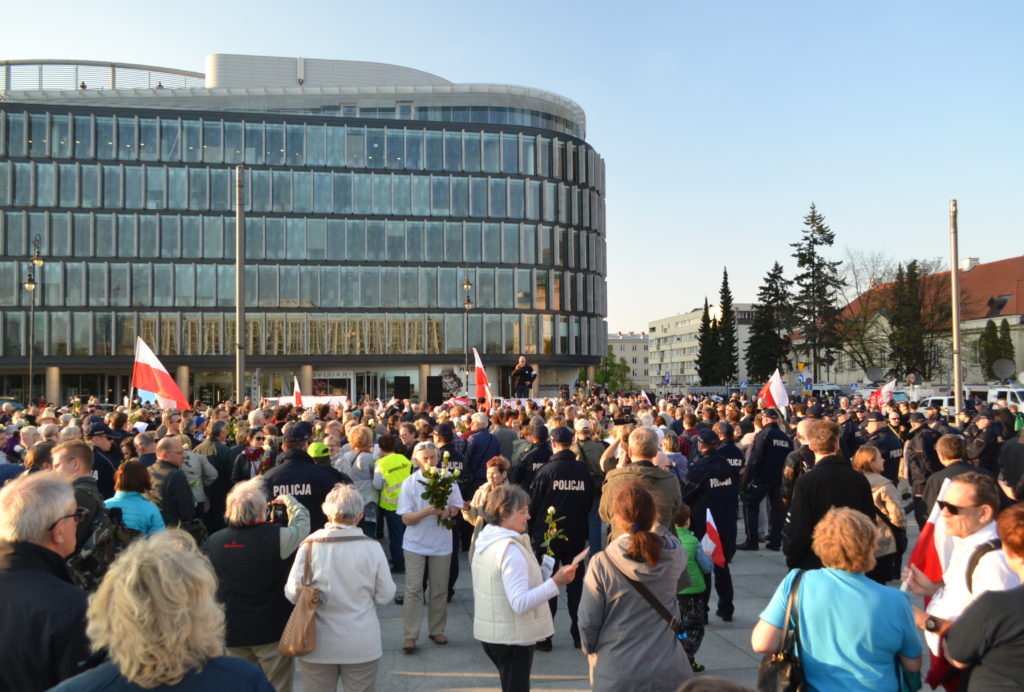
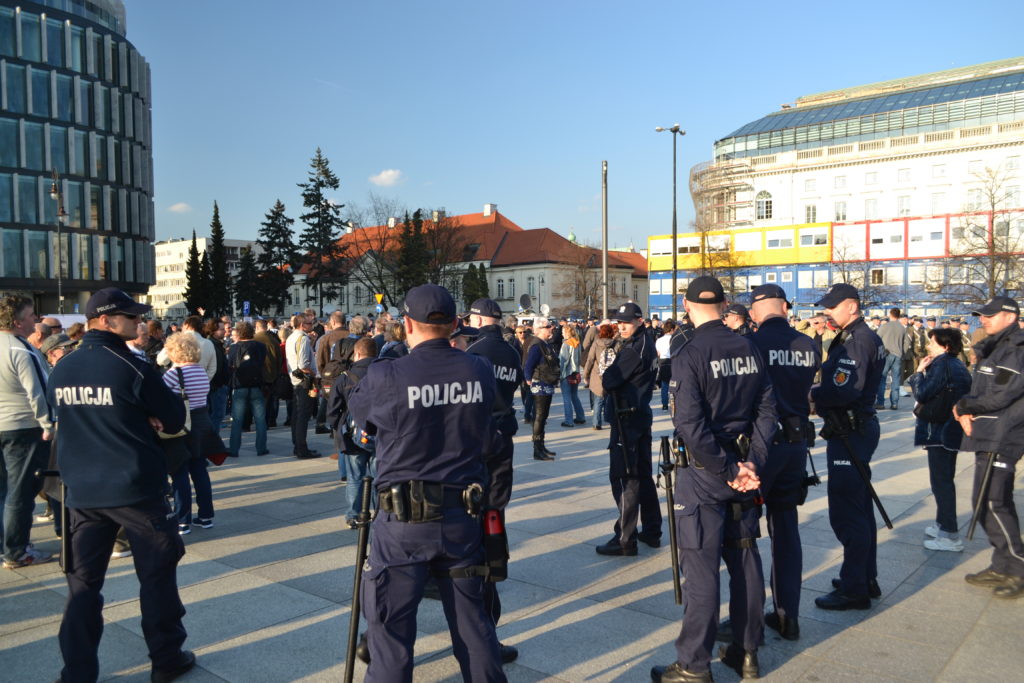 The crowd at Piłsudski Square was organized by a group called “Obywatele RP” (Citizens of the Polish Republic). This is not affiliated with the better known and much larger Committee for the Defense of Democracy [KOD], though the two groups share the same basic goals. The difference is that ORP engages in peaceful civil disobedience with the goal of exposing the regime’s brutality. Paweł Kasprzak, the group’s informal leader, was an anti-communist activist before 1989, and now he’s brushing off his old techniques.
The crowd at Piłsudski Square was organized by a group called “Obywatele RP” (Citizens of the Polish Republic). This is not affiliated with the better known and much larger Committee for the Defense of Democracy [KOD], though the two groups share the same basic goals. The difference is that ORP engages in peaceful civil disobedience with the goal of exposing the regime’s brutality. Paweł Kasprzak, the group’s informal leader, was an anti-communist activist before 1989, and now he’s brushing off his old techniques.
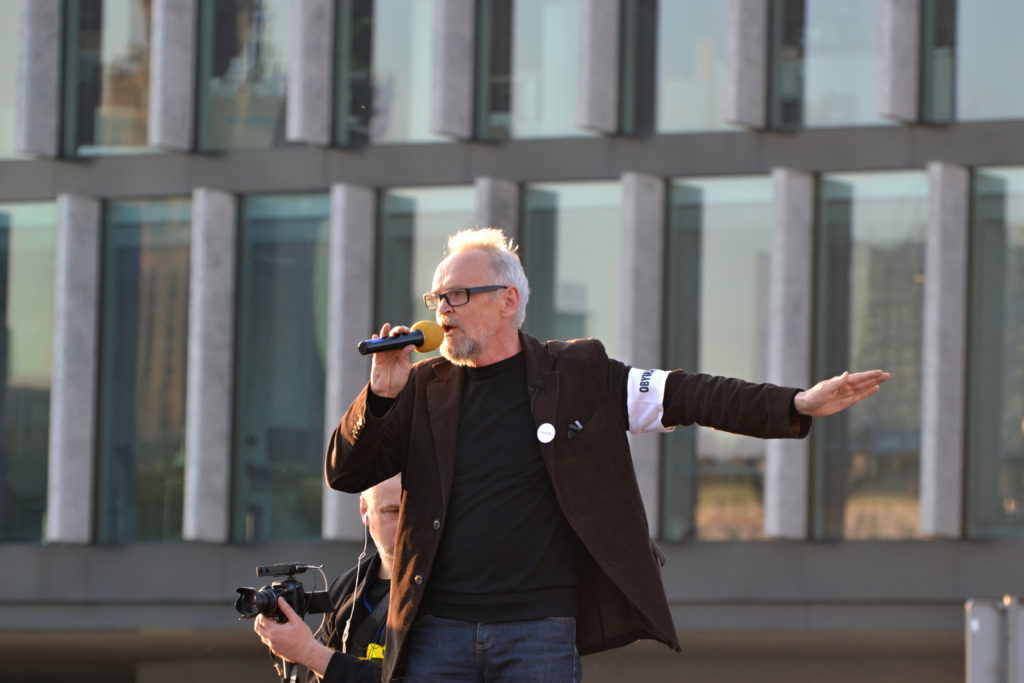
He is rather pessimistic; as he said in his speech yesterday, the defenders of democracy in Poland today are in the minority, and even if PiS is removed from power the social forces behind PiS will still be there. I don’t entirely share his view on this point, but it’s undeniable that there are millions of people in Poland who have lost faith in liberal democracy. And it is also probably true that big marches won’t accomplish much, particularly since the recent ones haven’t really been big enough to create any kind of political challenge.
Obywatele RP are emphatically non-violent, and even their approach to civil disobedience is remarkably polite and respectful. The goal yesterday was to quietly join the crowds watching the Smolensk anniversary ceremony, holding up signs that said “Mourning Unites Us, Political Demonstrations Divide Us,” or “We Remember All The Victims of the Catastrophe” or “I Continue to Believe in Empathy, Not Revenge.”
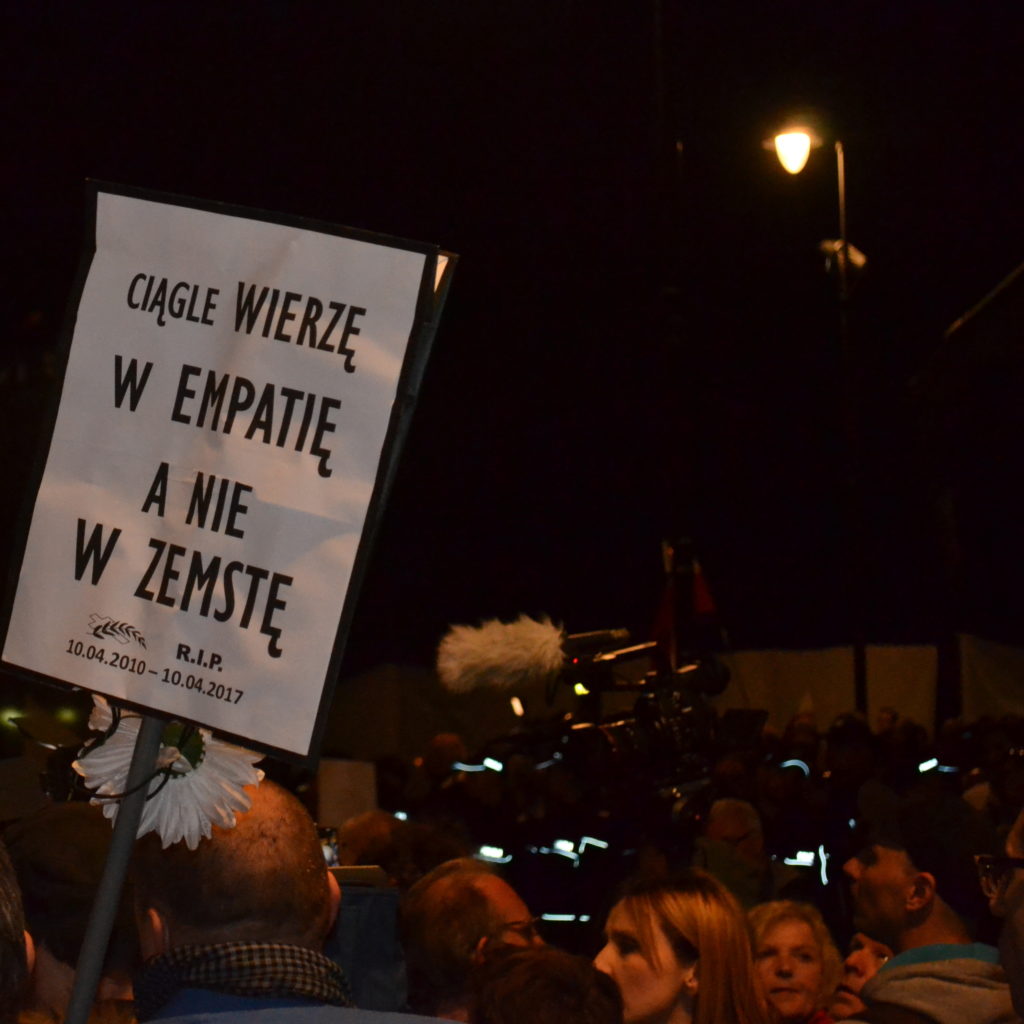
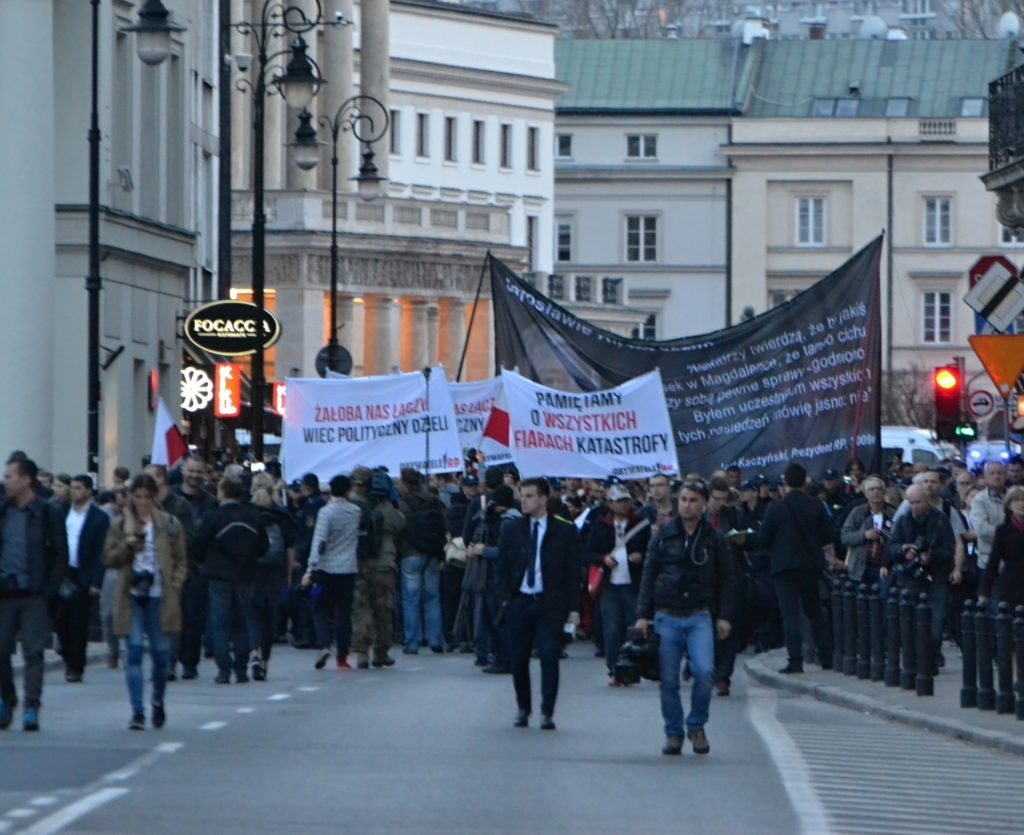
They were ready to chant “Constitution, Liberty, Democracy” if the moment called for it, but they also practiced going silent on cue. One of the most important things, Kasprzak said, was not to interfere with anyone’s prayers, so during the religious parts of the ceremony they were to be silent and respectful, and only get noisy if the PiS supporters did so first. Kasprzak said that PiS was trying to divide the country into “true Poles” and “traitors,” so the goal of ORP must be to display unity and compassion—even with their opponents.
The police were out in force, surrounding the ORP protest and taking pictures of everyone who was present (though plenty of activists were taking pictures of the police in turn).
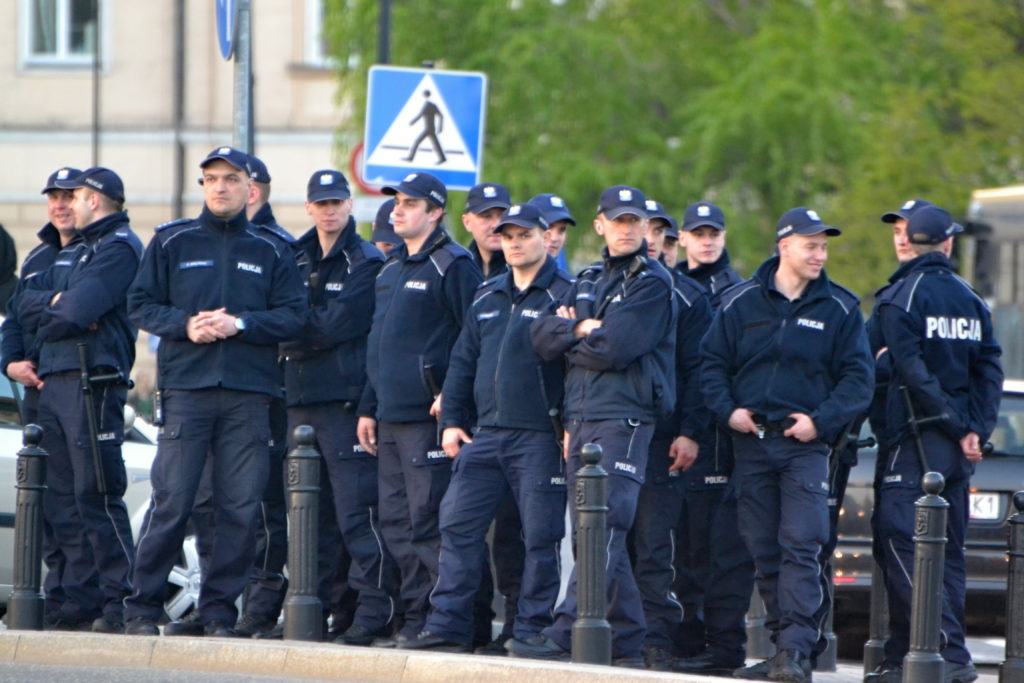
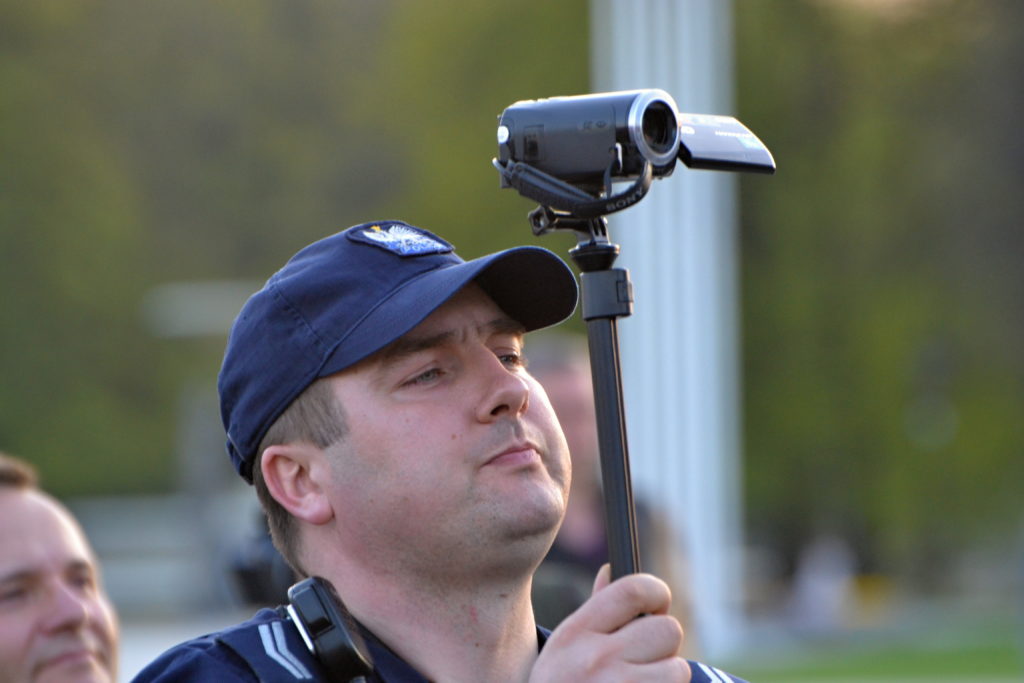
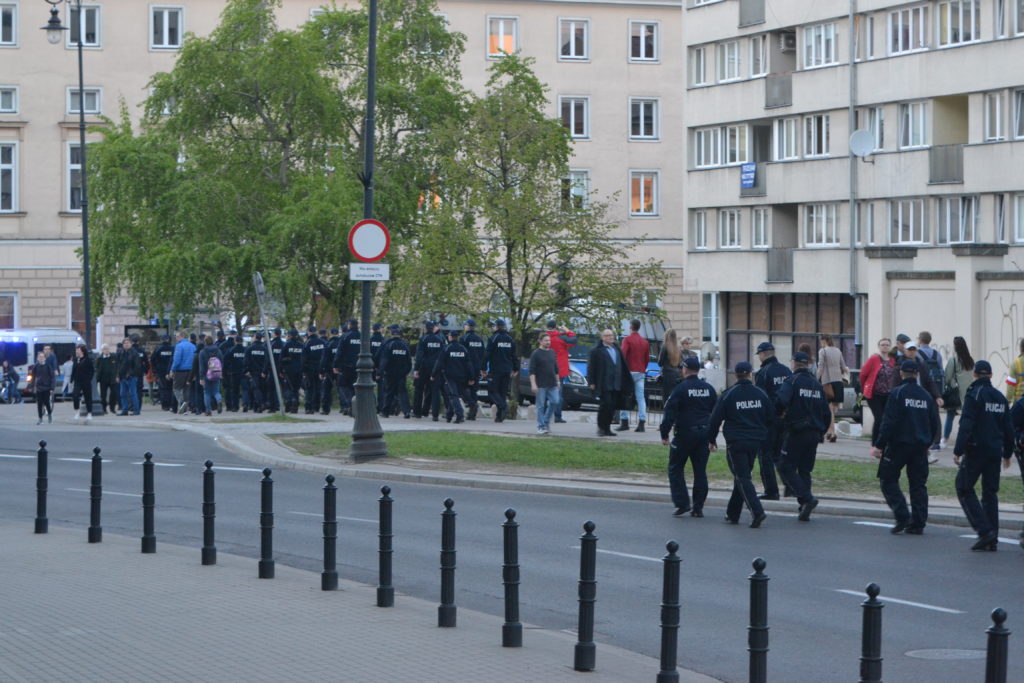
Kasprzak told his supporters to treat the police with respect, because they were just following orders. He emphasized, however, that those orders were unconstitutional, and that the police had a duty to disobey such orders. Specifically, he was referring to a new law stating that no demonstrations could be held within half a kilometer of any other event expressing an opposing point of view. The law included mechanisms to ensure that pro-government events would almost always be given first dibs on important times and places, thus relegating opposition events to the margins. The consensus opinion by Polish legal experts was that this law was unconstitutional, but now that the government has seized control of the high court, it was implemented without any problems. Yesterday was the first big test of that law.
Throughout what followed the ORP leaders remained in constant dialogue with the police, who for their part allowed the demonstration to march right up to the edge of Castle Square. At that point, however, they were met by a double-cordon of policemen, blocking every possible entrance to the entire historical district of the city. Waiting to the sides were even more police, who were quickly redeployed to whichever point of access the ORP demonstrators tried to used. The protestors had been instructed to speak to the police with a respectful tone of voice, and try to give them a pamphlet that explained how the new law was a violation of the constitutional right of free assembly. At one point Kasprzak said to the police commander, “do you sincerely think that we are a threat to anyone, or that we are going to disrupt the service?” It was clear from everything they had done so far that they were going to avoid any such disruption. When any sort of prayer was in progress, the ORP activists held up signs reading “silence!,” and to that point there had been no chanting or singing. To Kasprzak’s exasperated question, the police officer replied with startling and revealing honesty that he wasn’t worried about what the ORP people would do, but what the PiS supporters might do to them.
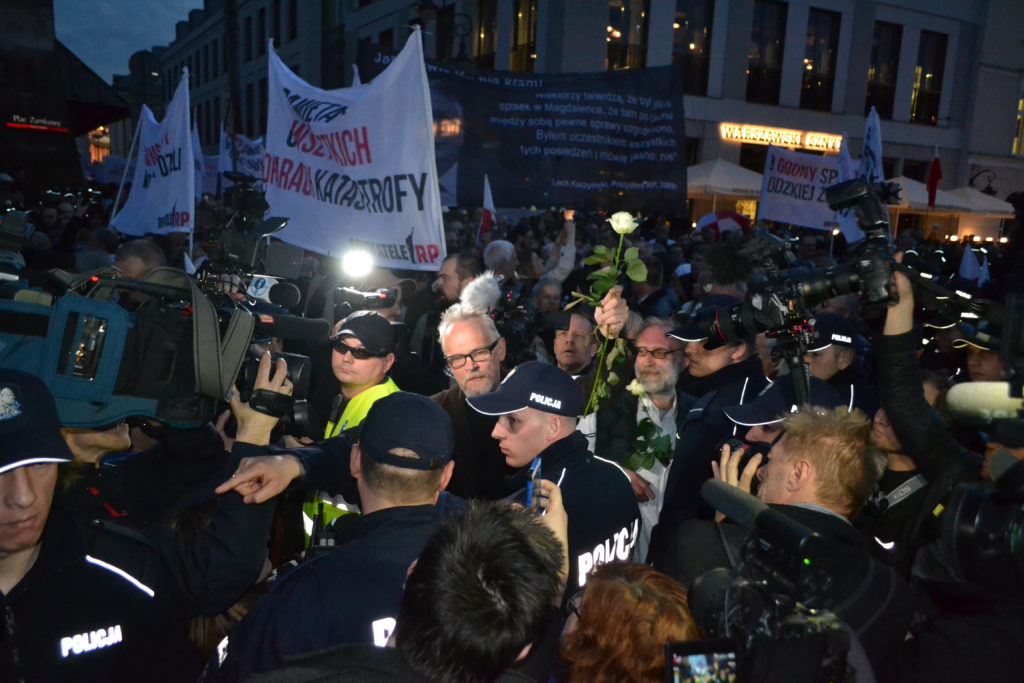
The stand-off lasted for a long time, as Kasprzak and his supports searched for ways to reach Castle Square, while hundreds of police kept the group corralled. Finally Kasprzak told his people to disperse, because nothing more was going to be accomplished that night. The media was there to record the whole episode, so his goals had been (mostly) achieved. As Kasprzak put it, a public event to commemorate a shared national tragedy was being held in a public space, but the government was preventing a peaceful, respectful group of citizens from taking part. I think Kasprzak was hoping that either PiS supporters would attack them, or that the police would try to break up the ORP demonstration by force, but the highly professional tactics employed by the police ensured that it never got to that point.
As I was following one group of demonstrators away from the event, a small confrontation did break out. The police were still there in force, so the two sides were separated by a double-cordon, but volleys of chants were exchanged.
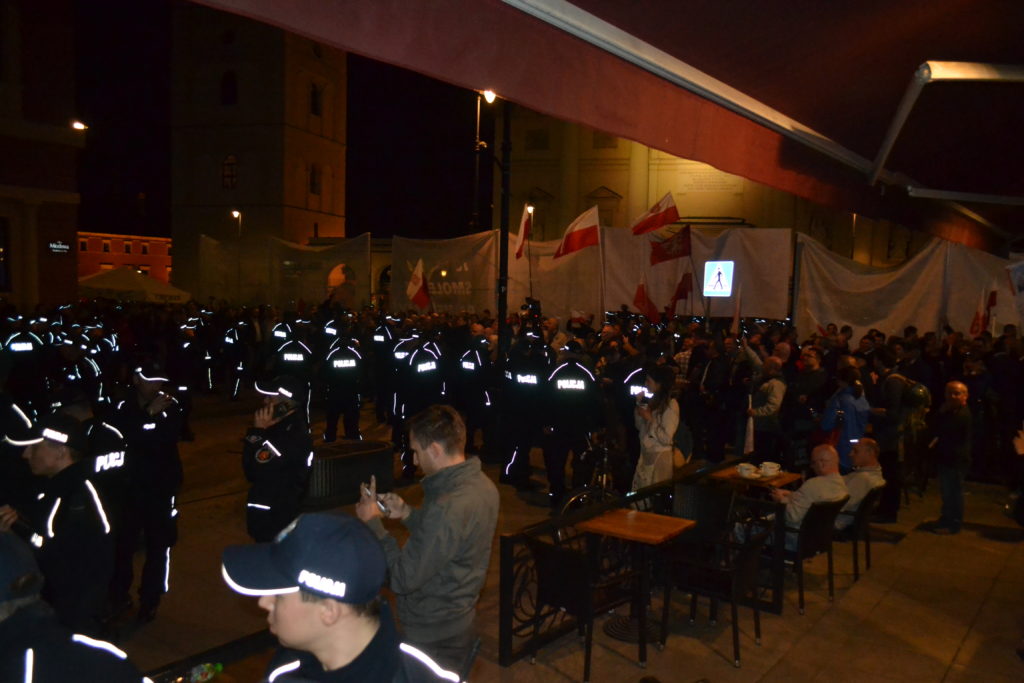
The difference between the two sides was eloquent. The ORP protesters chanted about Democracy, Liberty, and the Constitution, while those on the other side shouted “Traitors” and “Jarosław”. One side had lofty values, the other had invective and devotion to their leader. I don’t want to idealize Obywatele RP, nor do I want to demonize the rank-and-file supporters of PiS. But the contrast really was striking.
Earlier, Kasprzak was telling his supporters about the need to respect everyone, and to maintain dignity and calm even if things got confrontational. Democracy, he said, entailed courageous civil action aimed at persuading fellow citizens, and it was essential not to make the already deep divides even deeper. As he was speaking, two PiS supporters who had been standing next to me stormed off, and one said in disgust, “fucking lefties.” The other replied “yeah—you can see the sort of people we have to deal with.” At that moment, I was proud to be standing with the fucking lefties.